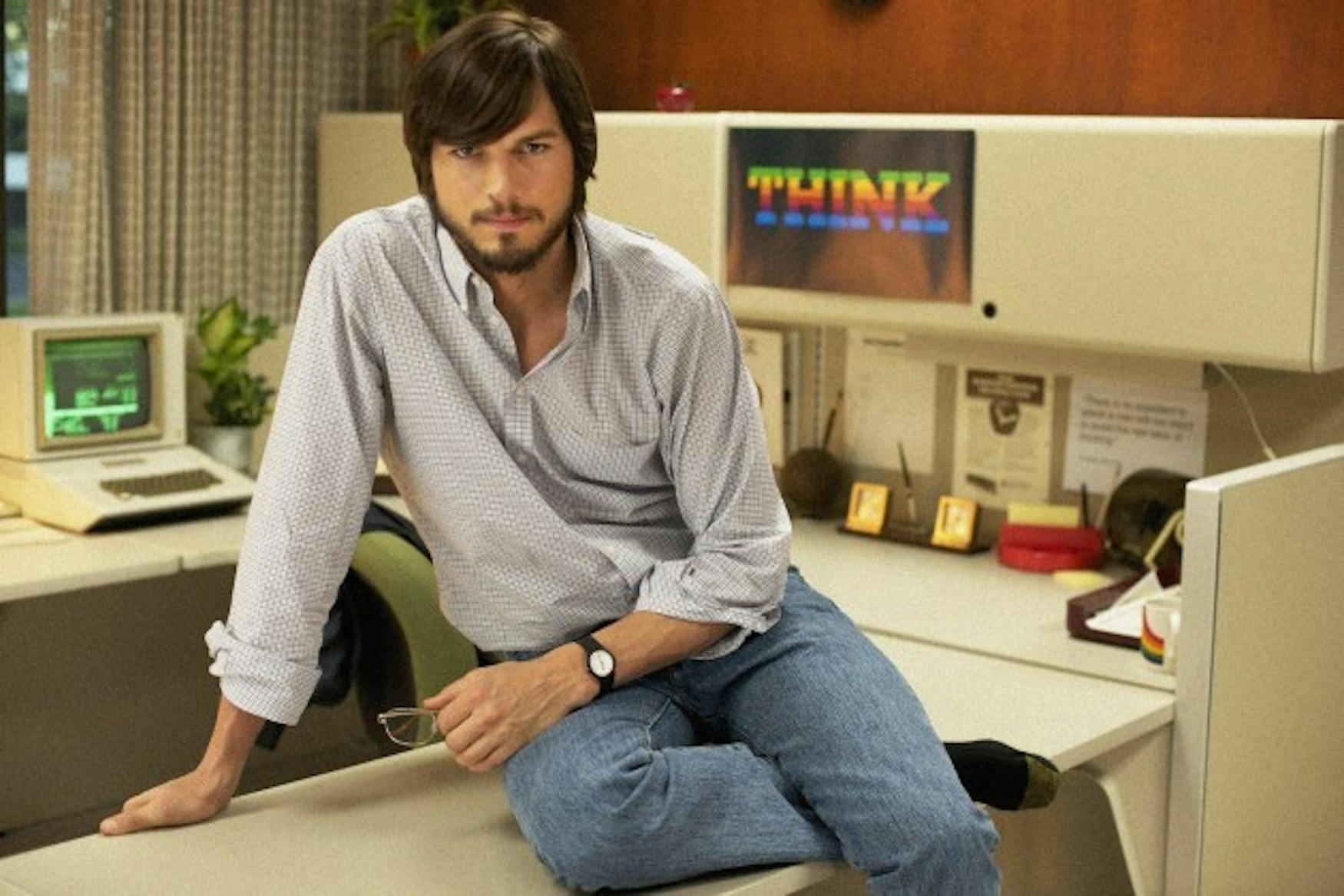Steve Jobs biopic does not fulfill expectations
I'm typing this article on my MacBook Pro while listening to iTunes and texting on my iPhone. My first iPod was a pink, first-generation mini and my technological life hasn't been the same since. We owe all these creations to the innovative and driven spirit of one man, Steve Jobs, and the company that he created from scratch. Less than two years after his death, the biopic film Jobs, starring Ashton Kutcher, was released to far less acclaim than I had expected after it being in the news for months. Drama between the movie studio and Jobs' old friends and coworkers built up hype around the movie, promising a story about an American legend that it just couldn't deliver. Maybe the timing was too soon; I agree with other reviews that argue that the movie did not capture the full story.
What we should really be looking at here is Kutcher's ability to carry a story-being able to embody a single person and bring the character to life. Though he was not in the public eye too extensively, Steve Jobs is an iconic figure, and Kutcher nailed his mannerisms, his slightly hunched walk and brisk attitude. Those who knew Jobs personally often say that he was not a nice guy, had a short temper and was often rude to his friends and employees-it isn't easy to build a movie around an inherently unlikeable protagonist. I do wish the movie had delved deeper into Jobs' anger toward employees (or their incompetence) and other personal issues, as it barely skimmed their surface. There were only a few scenes that actually showed Jobs' true demeanor-and those were some of the best in the film. The point of a biopic is to show the 'man behind the mystery,' and Jobs fell slightly short.
The movie spans from Jobs' time at Reed College (where he wasn't actually enrolled and did hallucinogens) to his triumphant return to Apple in 1997 to save the company. Spoiler alert: he does save it and introduces the first iPod in 2001, but that is where the film ends-leaving a decent amount of time between the depiction of the on-screen Jobs and the later legacy of the man who became so famous in real life. Though it would have been interesting to see the latter years of Jobs' life, I think that cutting off the film in 2001 leaves the audience with their own memories of Apple's growth over the past 12 years. The film also left out some of the most influential years of Jobs' life during his absence from Apple (when he worked on NeXT, Inc. and Pixar), yet alludes to how important the time was for Jobs by later commenting on how much he had "changed."
One of the most visually stimulating portions of the film is a scene that Jobs and his friend Daniel Kottke (Lukas Haas) spend in India, traveling around the country. His experiences abroad influenced both his attitude and mindset about technology as he returned to California, and Apple Computers was finally born (in Jobs' parent's basement) with co-founder Steve Wozniak (Josh Gad). Interestingly enough, the film had a separate cinematographer, Aseem Bajaj, for all the scenes shot in India. These scenes, though fast-paced and rapid, had a very realistic and mystical vibe-corresponding to what Jobs may have been feeling during his influential visit.
Gad gave a memorable performance as the friend who remains in the background during Jobs' success-in fact, this literally happens during the scene in which Apple signs with their first major investor Mike Markkula (Dermot Mulroney). I found myself feeling bad for Wozniak, from the moment Jobs hijacks his fun computer project, which becomes the first Apple computer system, to Wozniak's emotional goodbye to an unfazed Jobs when leaving Apple. Though the movie advertises them as the best of friends, Jobs takes advantage of Wozniak's intelligence and loyalty at every turn, and Gad perfectly captures the emotional state of the character. I'm not sure if the movie was written to their relationship as best friends, but it comes across as Jobs not appreciating who his true friends are and all they do for him.
Jobs might not have been my favorite summer movie, but I do appreciate its effort. Anytime one creates a biographical film, there are always discrepancies between what actually happened and what the production portrays. Jobs is a decent film that bombed in its first weekend at the box office (only $6.7 million opening weekend), but there is yet another biographical Steve Jobs movie in the works. Sony Pictures is producing a movie based on Walter Isaacson's best-selling biography, and most notably, Aaron Sorkin-the same writer who gave us The Social Network-is writing the screenplay. With old friends and coworkers scrambling to take sides on which production better represents Steve Jobs, the success of Jobs cannot truly be measured until we see its counterpart. I enjoyed watching the movie-especially seeing Kutcher take on a different role than his usual comedies-but in the end, I was left thinking there was still hidden potential that the film didn't reach.




Please note All comments are eligible for publication in The Justice.